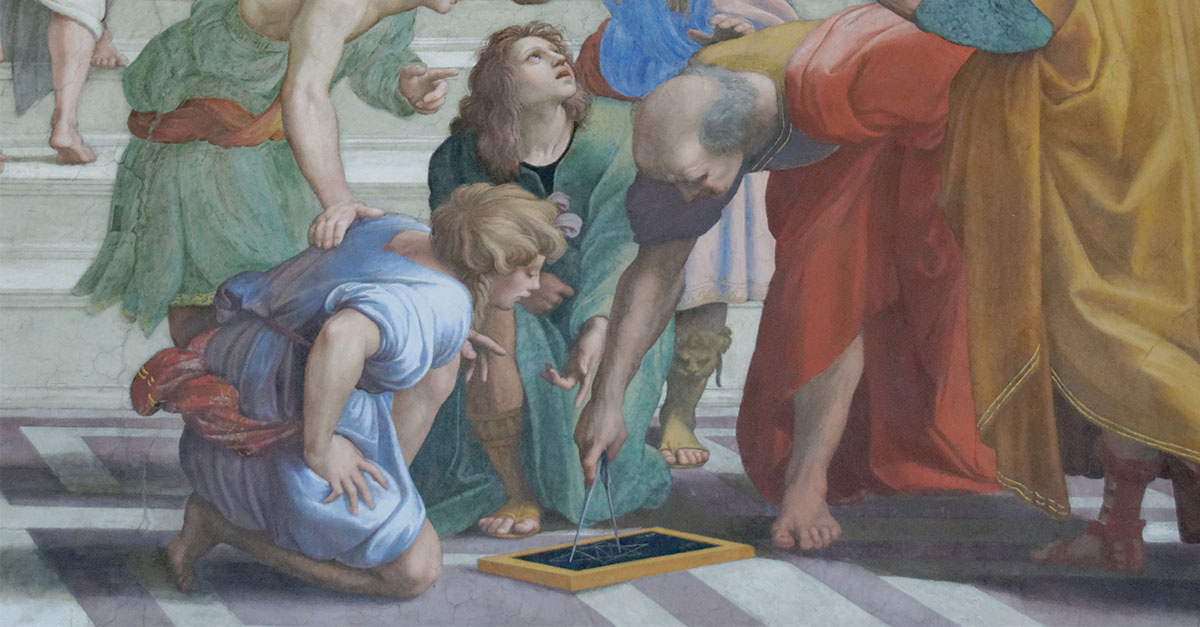
Imagine the following scene:
A three year old child (let’s call her Susie) is playing with blocks of varying lengths on the floor. She carefully places one block on top of another, trying to find blocks that match in length.
If you ask Susie what’s she doing, she’ll say, “I’m just playing.” But actually, she’s learning mathematics! And I think if you asked Euclid (one of the world’s first mathematicians and the father of geometry) he’d say she’s learning geometry the right way.
Consider this basic principle from Book 1 of Euclid’s groundbreaking text Elements:
Things which equal the same thing also equal one another.
It will likely be many years before Susie will be able to read Euclid’s book and understand what he meant in that statement (listed as “Common Notion 1” in most translations, including this online one.) And yet, when Susie takes block A and places it on top of block B, sees that they match, and then takes block B and places it on block C, she is building a concrete and experiential knowledge of the very principle Euclid is stating here. In high school, knowing this principle as an abstract concept will prove useful in balancing ratios and solving algebraic equations, but the concrete exploration that Susie is engaged in with the blocks on the floor will shape her intuition and make learning algebra much easier.
In Plato’s Meno dialogue, Socrates draws geometric figures on the ground in order to demonstrate to an unnamed slave boy how to find twice the area of a square. It is important that Socrates is teaching an uneducated slave: Plato is showing his audience that math is universal and accessible, and thus that mathematical knowledge is not limited to the formally-educated elite. When Socrates draws geometry in the dirt, the slave boy exclaims “I see!” – because math is fundamentally about seeing the world around us and coming to know that world as exciting and intelligible.
Abstract math rooted in symbolic language (numbers, letters, division signs, etc.) is important. For example, without the discipline of calculus, we wouldn’t be able to do the kind of advanced physics needed to send rockets into space. And yet none of us can begin with calculus: we all start our math education by feeling our fingers and playing with blocks – slowly intuiting geospatial concepts like “longer and shorter” and “more and less” well before we have learned the language needed to turn those intuitions into structured thought.
The Math-U-See approach takes seriously the insight of Euclid and Plato. We recognize that building conceptual mastery requires intuition and formal language, concrete visualization and abstraction. This is why at every beginner and intermediate level of Math-U-See, from Primer through Algebra 1, we use manipulatives to teach everything from 1 + 1 to how to factor a polynomial or solve an algebraic equation.




Thank you for that example on geometry.